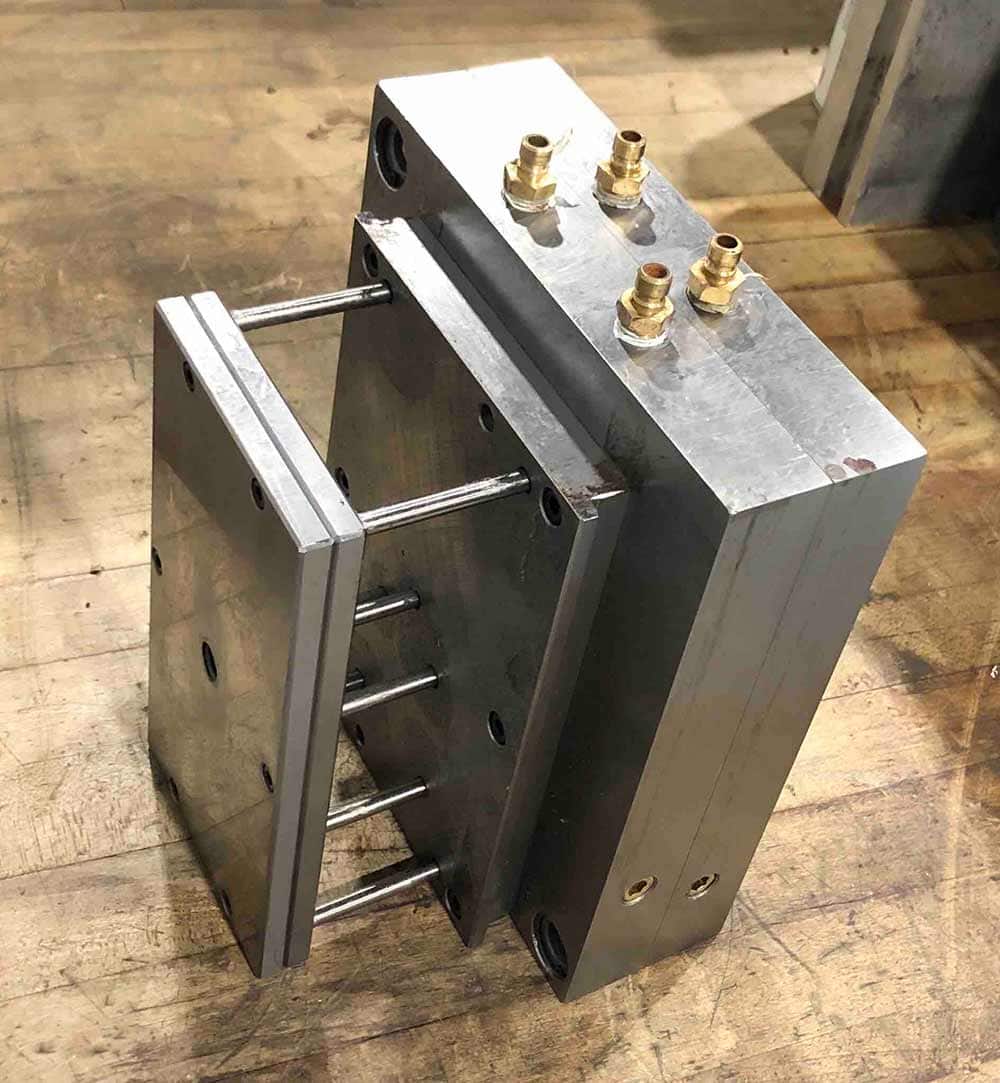Abtec has a team of experts who design, develop, and manufacture custom injection molds and support tooling. When designing parts for injection molding, we work with the most advanced technologies and processes, including state-of-the-art 3D design software to produce precise injection molds and CNC machining technologies to manufacture quality molds in a short time frame.
Abtec builds molds for injection molding using Modular Unit Die, or MUD®, technology. Five standard MUD® frame sizes meet the needs of most molding requirements. However, when parts are larger or have multiple or extra deep cavities, full chase tools are utilized. The engineers and tool designers at Abtec will work with customers to develop the best and most economical injection mold solutions to meet even the strictest industry standards.
Which Materials Are Used to Make Injection Molds?
Steel is a common material for injection molds. The size of the mold is the main determinant of what material will be utilized, as the percentage of steel used in the mold is the main cost factor for the final mold. Other factors include whether the steel will be heat-treated and whether the mold will contain moving parts. The type of resin to be used is a main factor as well.
Common steels used for plastic injection molds include:
- P20 Steel: This is an ideal choice because of its polishing ability and good wear and tear resistance.
- 420 Steel: This is a hardenable, martensitic stainless steel that has a limited operating range.
- H-13 Steel: This versatile, chromium-molybdenum steel is widely used in hot work and cold work tooling applications.
- A-2 Steel: This air-hardening tool steel has excellent dimensional stability in heat treatment.
- D-2 Steel: This air-hardening, high-carbon, high-chromium tool steel features high wear- and abrasion-resistant properties.
Aluminum or Steel?
When deciding between aluminum or steel for injection molding, there are several key differences that will help you choose the best option.
Steel is ideal for large production runs of more than 50,000 units, whereas aluminum is more cost-efficient for small production runs of one to two thousand units. Aluminum molds can see significant wear on larger production runs, at which point they would need to be replaced or modified. Durability makes steel a better choice for advanced injection molding resins because certain additives can cause damage to aluminum injection molds.
Aluminum has quicker heating and cooling times, which leads to faster mold productions. These more uniform heating and cooling times can reduce the number of rejected parts due to shrinkage, warping, or other defects. Steel is ideal for molds that require very precise and detailed features. When it comes to repairs and replacements, damaged steel molds are more costly than aluminum molds, which are much easier to repair or modify.
Contact Abtec for Your Injection Mold Needs
With years of experience producing high-quality injection molds for a range of industries, Abtec is ready to work with you to create custom injection molds to meet your needs. Contact us to learn how we can help you from part conception and design to engineering, injection mold making and the manufacture of your custom parts.

